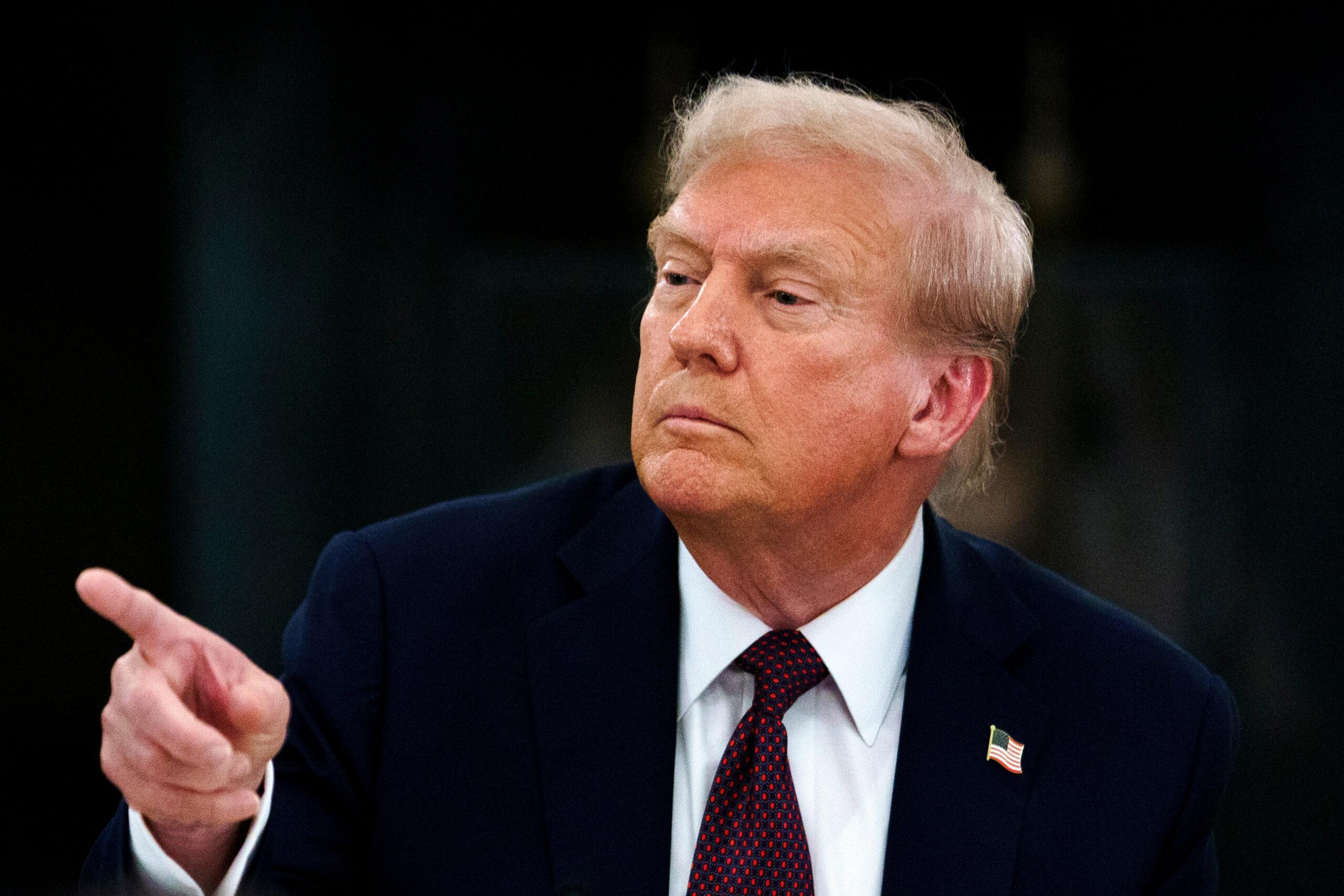
Plain English With Derek Thompson
Trumponomics Explained, Part 2: The Enshittification of American Power
Hosts
About the episode
In the second of our two-episode series on Donald Trump, economics, and power, we talk to Henry Farrell, a professor of political science at Johns Hopkins. Farrell has written extensively on how the United States has in the last few years weaponized its economic power to force other countries to do its bidding, through sanctions or the freezing of bank accounts. Today, we consider the many ways that Trump has weaponized the office of the presidency against American interests and how his authoritarian style matches up against China as both countries race toward superintelligence.
If you have questions, observations, or ideas for future episodes, email us at PlainEnglish@Spotify.com.
Host: Derek Thompson
Guest: Henry Farrell
Producer: Devon Baroldi
In the following excerpt, Derek talks to Henry Farrell about the chaos that defines Trumponomics.
Derek Thompson: Henry, I’d like to start with a stupid, simple question. Donald Trump is, I think it’s fair to say, an unusual president. As a political scientist, what is it that you think makes him most unusual?
Henry Farrell: I think that Trump is allergic to process. He is allergic to other people telling him what to do. And this means that in a very important sense, he is allergic to many of the things that have made American presidents very powerful in the last 60 to 70 years. Because if you think about the way in which the presidency works, it really is about leveraging the power of the administrative state, leveraging all of the expertise that the administrative state has built up. And these are things that Donald Trump either doesn’t care about, or he’s actively hostile toward. And so I think this really does create a very, very different approach to politics than we have seen before from a U.S. presidency—including in some important ways in the first Trump presidency where people like, God help us, John Bolton, somebody who I would never have thought of as being an avatar of order, is rushing around trying to impose some kind of process on the foreign policy decision-making administrations.
And now we’re in a world where, more or less, I think anything goes. And so if I was to say, what is Trumponomics? Political scientists like me, we tend very often to try and come up with grand abstractions about “Here is the fundamental logic. Here are the five principles that drive Donald Trump.” I don’t think you can do this. I think that you should think instead of Donald Trump as being kind of like a billiard ball bouncing around between these different possibilities. He clearly has a kind of impetus. There are certain things that drive him, but the ways in which these intersect with the ordinary ways in which foreign policy is made is a quasi-random process. And we are going to see a lot more unpredictability over the next few years.
Thompson: You just said something very interesting that I think might cause some listeners to bump a bit. You said Trump is allergic to the things that have made American presidents strong, and that implies a style of power that is relatively weak. I think most people would actually assume the opposite, that Donald Trump is commanding, insisting on powers of the presidency that make him too powerful, too strong, which is why I hear so many comparisons to strongmen from other developing countries like Turkey or Argentina. How do you feel about those comparisons?
Farrell: This is a very, very weird-sounding comparison. It is to Lorenzo de’ Medici, who is a famous Florentine politician. So there’s a great piece of sociology written by these two professors, Padgett and Ansell, talking about the ways in which de’ Medici actually made policy. de’ Medici was pretty crafty, and I think a much more sophisticated person in many ways than Donald Trump. But the one thing that Padgett and Ansell stress is that de’ Medici never wanted to be pinned down. So they’re contrasting this with standard accounts of politics in which politicians have goals and they figure out the smartest way to reach these goals. And they say that this guy, the way in which he operated was to try and make sure that everybody else gets pinned down. They reveal what their preferences are, they reveal what they want. And then de’ Medici has this power, which is effectively this power to be the person who responds and to be the person to whom everybody else has to respond. Everybody else has to update their plans depending on what he decides.
If you can think about Donald Trump as being like a kind of cut-rate version of this, I don’t think that he has that same kind of deep sense of strategy that a Florentine Renaissance politician had to have. But instead, as somebody who absolutely does not want to be constrained, and any time that he feels that he is being constrained, he’s liable to do something crazy and unpredictable just to keep everybody else guessing. And so I think that this is really the fundamental comparison that I would draw in order to explain Donald Trump. And I should say, this is something that I said right at the beginning of his first administration. I guess we all tend to remember the predictions that we made that came to pass and we conveniently forget the ones that did not, this is the one that I would stake my reputation on, as this was a bet that actually turned out to be 100 percent right about how to think about Donald Trump.
This excerpt has been edited and condensed.
Host: Derek Thompson
Guest: Henry Farrell
Producer: Devon Baroldi
